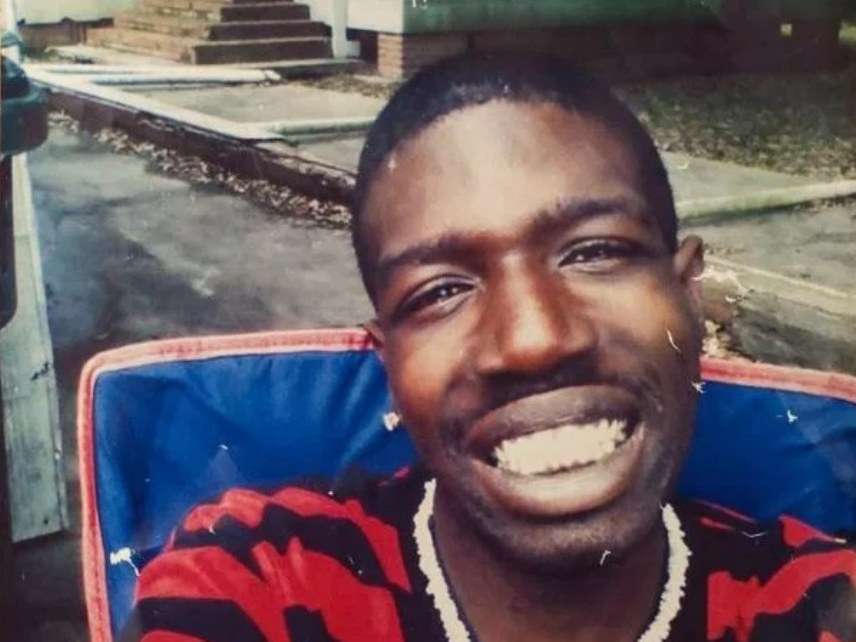Sugar Town Puts Louisiana Police Misconduct in the Spotlight
Investigation Discovery documentary details the shooting death of a young man in police custody, absurdly framed as a suicide.
Sugar Town. Investigation Discovery. Monday, August 6, 8 p.m.

No network runs more true-crime slice-and-dice than Investigation Discovery. From Beauty Queen Murders to Bad Teachers to the epochal work of sociology Truth Is Stranger Than Florida, ID is pretty much round-the-clock police procedural, with cops hunting killers and rapists and guys who tear those tags off of mattresses.
Sugar Town is a complete reversal of form: This time, the police are the bad guys and their investigation is the crime. And the result is a show more horrifying than anything about the Boston Strangler or Aileen Wuornos. Low-key but packing a powerful punch, Sugar Town ought to convince even the most indifferent citizens that maybe this #BlackLivesMatter stuff is worth worrying about.
The life that didn't matter—at least to the police—in this case belonged to Victor White III, a 22-year-old kid who lived in New Iberia, a small town in southern Louisiana. One night in March 2014, Little Vic, as his family called him, had walked to a convenience store with a friend for cigarillos.
On their way home, they were stopped by cops who thought they might be the two guys who were involved in a fight at the store that had just been called in. They weren't, but a search of their pockets revealed that Little Vic had small bags of marijuana and cocaine.
His friend was sent packing, but a snugly handcuffed Little Vic was driven to the police department for booking. He didn't make it. Police said he refused to get out of the patrol car, then whipped out a pistol that somehow hadn't been discovered during the drug search, shouted "I can't go back to jail!" and shot himself in the right side of his chest. The bullet went up and out through his left armpit and Little Vic was dead before the cop could even pull him out of the car.
His parents—called at their home a hundred miles away and told their son was dead—were instantly suspicious. Neither the cops nor the hospital would tell them exactly what had happened. (They found out the next from a television newscast.) They were kept from seeing the body for an incomprehensibly long time.
As the police investigation continued the next few days, their suspicions hardened into a certainty that the cops had killed Little Vic. There was a long gash on his forehead that doesn't appear in photos and home movies taken earlier in the day, as if he'd been beaten.
And the shot that killed him seemed more and more improbable. How did the left-handed Little Vic twist his hands around to fire a shot through his right side? In fact, how did he twist his hands at all? They were bound behind his back with handcuffs that fastened together with a hinge rather than a chain, making it virtually impossible to maneuver them.
Then there was the matter of the gun, which the cop who arrested Little Vic hadn't found while he was searching Little Vic for drugs. "It had to be in his butt crack," the arresting cop explained. Little Vic's father referred to his son's death as the #houdinihandcuffkilling in his tweets.
Though Sugar Town is a sort of reverse-procedural, tracking the police investigation backward, it's even more a chronicle of a heartbroken family's dogged determination not to let their son's case die along with his body. Victor White was both media-savvy and profoundly aware that the Iberia Parish sheriff's office was a shadowy, sinister place. Victor had spent several years as the office's liaison to the black community and left when a new sheriff was elected on a tough-on-crime platform that infused the town's atmosphere with a piercing tension.
That sheriff, Louis Ackal, had more than the #houdinihandcuffkilling to worry about. A separate federal investigation, triggered by a jail security-camera video of his deputies unleashing a police dog on two inmates lying defenselessly on the floor, was uncovering a pattern of terrifying brutality in the sheriff's office.
At least eight prisoners had died in Ackal's custody, and deputies told the feds they were regularly sent out on "nigger-knocking" missions—pretty much just what they sound like—on the other side of the tracks. At the jail, the chapel—about the only place in the building not under security-camera surveillance—had been turned into full-blown torture chamber where inmates stood in line to be beaten senseless.
Eventually, Ackal would face both criminal and civil trials for his behavior. I won't tell you how they turn out, though if you've been following the various Black Lives Matter cases the last couple of years, it's not exactly a hard guess.
Yet even if you know how it's going to turn out, Sugar Town is an irresistible story, a tale of sordid arrogance told magnificently through surveillance videos and taped depositions. Watching Ackal scream at the White family's attorney that she has no right to question him—"I'm the sheriff and you're in my office! And I'm tired of Victor White and his filthy mouth!"—is a heart-stopping experience. The word "Nazi" gets thrown around entirely too much these days, but this man is a true totem of totalitarianism.
His furious barbarity stands in stark contrast to the quiet, grief-stricken dignity of the White family. There is little rhetoric from the family's side of Sugar Town, just a certainty—possibly naïve—that such evil cannot stand. "We may never receive justice," says Little Vic's sister quietly. "But I bet you another family will."


Show Comments (14)